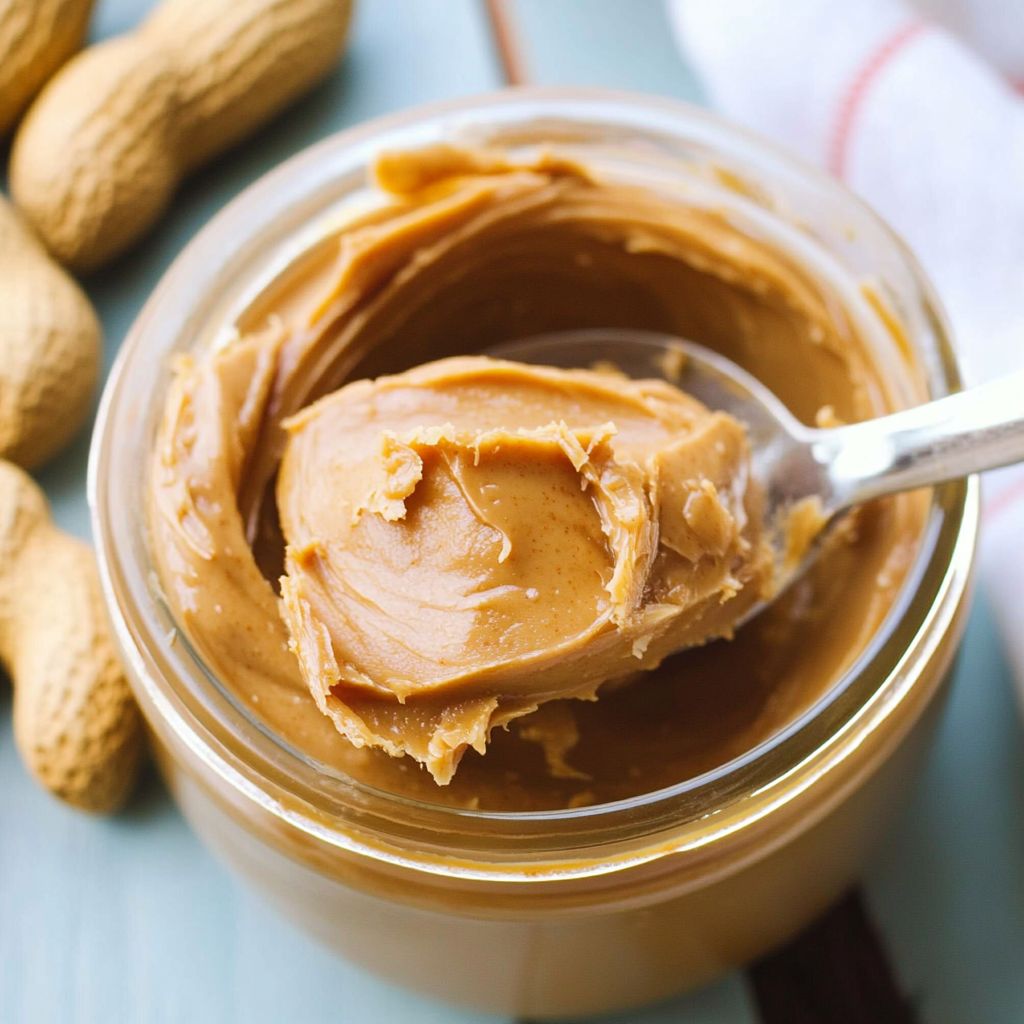Table of Contents
Are you ready to embark on a culinary journey that celebrates the rich, nutty goodness of organic peanut butter? This isn’t just any peanut butter; we’re talking about the real deal – creamy, wholesome, and bursting with flavor. Forget the mass-produced varieties loaded with added sugars and questionable ingredients. This recipe guides you through creating your own organic peanut butter from scratch, ensuring you know exactly what goes into each spoonful. From the careful selection of organic peanuts to the final creamy consistency, this recipe promises a satisfying experience for both your taste buds and your conscience. Get ready to discover the unparalleled taste and health benefits of homemade organic peanut butter. You’ll be amazed at how easy it is to make and how much better it tastes than anything you can buy in the store!
Why You’ll Love This Organic Peanut Butter Recipe
Making your own organic peanut butter is an incredibly rewarding experience. Firstly, you gain complete control over the ingredients. Say goodbye to hidden sugars, preservatives, and potentially unhealthy additives commonly found in store-bought varieties. You’ll be using only the finest organic peanuts, ensuring a pure and delicious result. Secondly, the flavor is simply unmatched. Homemade organic peanut butter boasts a richer, more intense peanut flavor compared to commercially produced brands. This intense flavor comes from the fresh, high-quality peanuts, and the lack of added processing. The texture is also far superior; you can customize it to your perfect consistency – super creamy, slightly chunky, or anything in between! Finally, making your own organic peanut butter is a fun and engaging process. It’s a wonderful activity for a rainy afternoon, a perfect project for the whole family, or a relaxing way to unwind after a long day. The sense of accomplishment is incredibly gratifying.
Why You Should Try This Organic Peanut Butter Recipe
Beyond the delightful taste and texture, this recipe offers a wealth of health benefits. Organic peanuts are packed with nutrients, including healthy fats, protein, fiber, and various vitamins and minerals. By making your own peanut butter, you avoid the partially hydrogenated oils and added sugars prevalent in many store-bought brands, which can negatively impact your health. This recipe emphasizes the importance of using organic peanuts, reducing your exposure to pesticides and other harmful chemicals commonly used in conventional farming. The high protein content makes it a fantastic addition to a balanced diet, providing sustained energy and aiding muscle growth and repair. Plus, the fiber content helps with digestion and keeps you feeling fuller for longer. This homemade organic peanut butter is a guilt-free indulgence that nourishes your body from the inside out. It’s a simple and delicious way to prioritize your health and well-being.
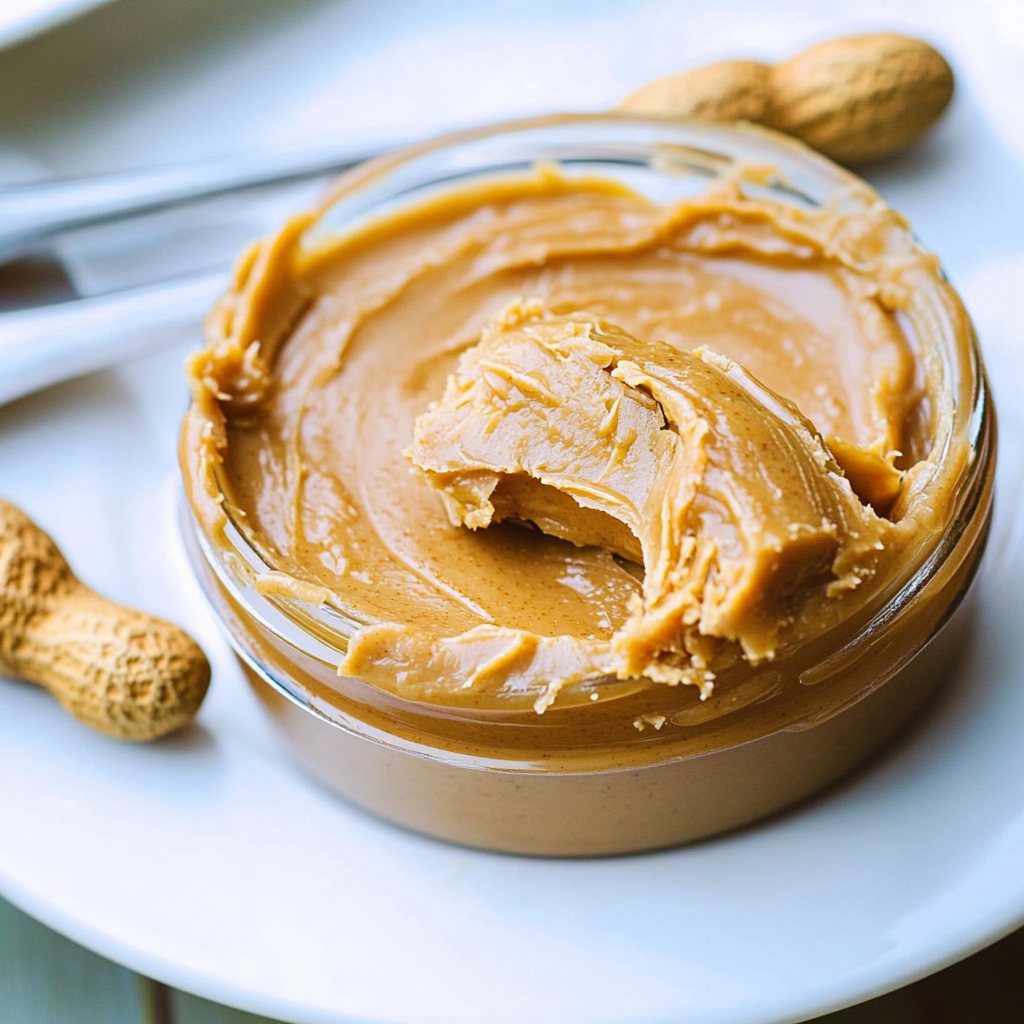
Ingredients and Equipment for Homemade Organic Peanut Butter
Essential Ingredients:
- 2 cups organic roasted peanuts (unsalted, you can find these in most health food stores or online)
- 1-2 tablespoons organic coconut oil (optional, for extra creaminess and to adjust consistency)
- Pinch of sea salt (optional, to enhance the flavor)
Recommended Equipment:
- High-powered food processor: This is crucial for achieving a smooth, creamy consistency. A basic blender may struggle with the task.
- Measuring cups and spoons: For accurate ingredient measurements.
- Spatula or rubber scraper: To scrape down the sides of the food processor and ensure even processing.
- Airtight storage container: To store your freshly made organic peanut butter and maintain its freshness. Glass jars are ideal.
Tip: For a chunkier peanut butter, simply process the peanuts for a shorter period. For extra smooth organic peanut butter, add a little more coconut oil. Experiment to find your perfect consistency!
Detailed Steps for Making Organic Peanut Butter
- Prepare your peanuts: Ensure your organic peanuts are roasted and unsalted. If using raw peanuts, lightly roast them in a dry pan over medium heat until fragrant and lightly browned, stirring frequently to avoid burning. Let them cool completely.
- Add the peanuts to the food processor: Pour the cooled peanuts into your high-powered food processor.
- Process the peanuts: Process the peanuts on high speed for several minutes, scraping down the sides of the bowl as needed, until the peanuts begin to release their oils and form a paste. This can take anywhere from 5-15 minutes depending on the power of your food processor.
- Check the consistency: Stop the food processor and check the consistency of the peanut butter. If it’s too thick, add a tablespoon of coconut oil and continue processing. If it’s too thin, simply continue processing until it reaches your desired consistency.
- Season (optional): Add a pinch of sea salt, if desired, and process for another minute to incorporate it evenly.
- Transfer and store: Transfer your freshly made organic peanut butter to an airtight container. Store it in the refrigerator to maintain its freshness for several weeks.
Important Note: Be patient during the processing stage. It may take a bit of time for the peanuts to release their oils and create that smooth, creamy texture. Don’t give up! The result is worth the wait.
Tips and Variations for your Organic Peanut Butter
Alternative Sweeteners: For a touch of sweetness, consider adding a small amount of organic maple syrup or honey. Start with a teaspoon and add more to taste.
Vegan Option: This recipe is already naturally vegan, as long as you use unsalted organic peanuts and coconut oil.
Gluten-Free Option: This recipe is naturally gluten-free.
Nut-Free Alternative: While not a direct substitute, sunflower seed butter is a common alternative for those with nut allergies. You can follow a similar process using roasted sunflower seeds. Find a sunflower seed butter recipe here.
Avoiding Common Mistakes: Using raw peanuts without roasting them will result in a less flavorful peanut butter. Ensure your food processor is powerful enough for the task. Insufficient processing will result in a grainy texture.
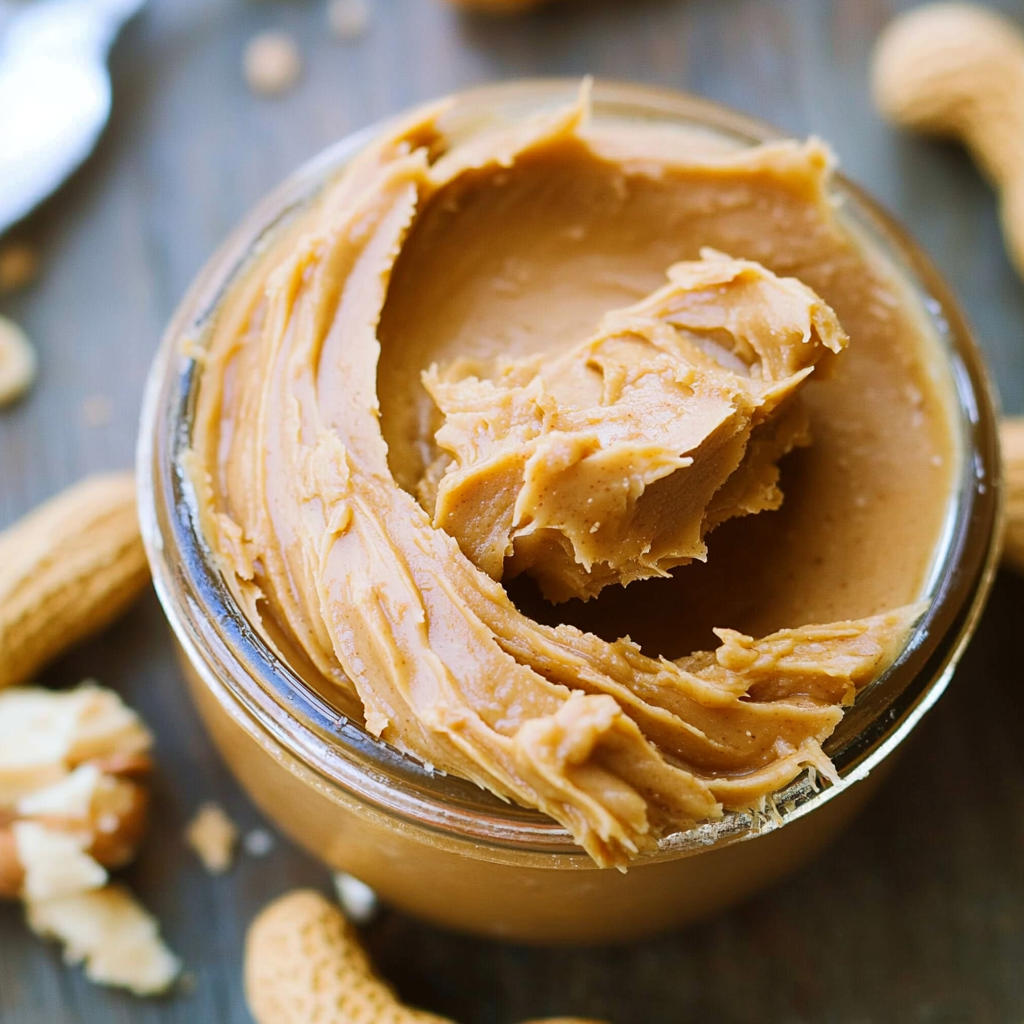
Nutritional Values and Benefits of Organic Peanut Butter
The nutritional content of your homemade organic peanut butter will vary slightly depending on the specific peanuts used, but generally, a 2-tablespoon serving will contain approximately:
- Calories: 190-200
- Protein: 7-8 grams
- Fat: 16-18 grams (mostly unsaturated healthy fats)
- Carbohydrates: 6-7 grams
- Fiber: 2-3 grams
Health Benefits: Organic peanuts are a fantastic source of monounsaturated and polyunsaturated fats, which are beneficial for heart health. The protein content contributes to muscle growth and repair. The fiber aids digestion and promotes satiety. Peanuts are also a good source of vitamin E, magnesium, and other essential minerals. Using organic peanuts minimizes exposure to pesticides, making it a healthier choice overall.
FAQ: Frequently Asked Questions about Organic Peanut Butter
Q: Can I use salted peanuts?
A: While you can use salted peanuts, it’s best to start with unsalted peanuts to control the salt level. You can always add salt to taste later.
Q: How long will my homemade organic peanut butter last?
A: Stored properly in an airtight container in the refrigerator, your homemade organic peanut butter should last for 2-3 weeks. Its flavour will start to degrade after a while, even when stored properly.
Q: What if my peanut butter is too thick or too thin?
A: If your peanut butter is too thick, add a little more coconut oil and process again. If it’s too thin, process it for a longer period to allow more oil to be released from the peanuts.
Q: Can I make this in a regular blender?
A: It’s possible, but a high-powered food processor is highly recommended. A standard blender might struggle to achieve the desired creamy consistency.
Q: What are the benefits of using organic peanuts?
A: Organic peanuts are grown without the use of synthetic pesticides and fertilizers, reducing your exposure to harmful chemicals. They are also typically higher in nutrients.
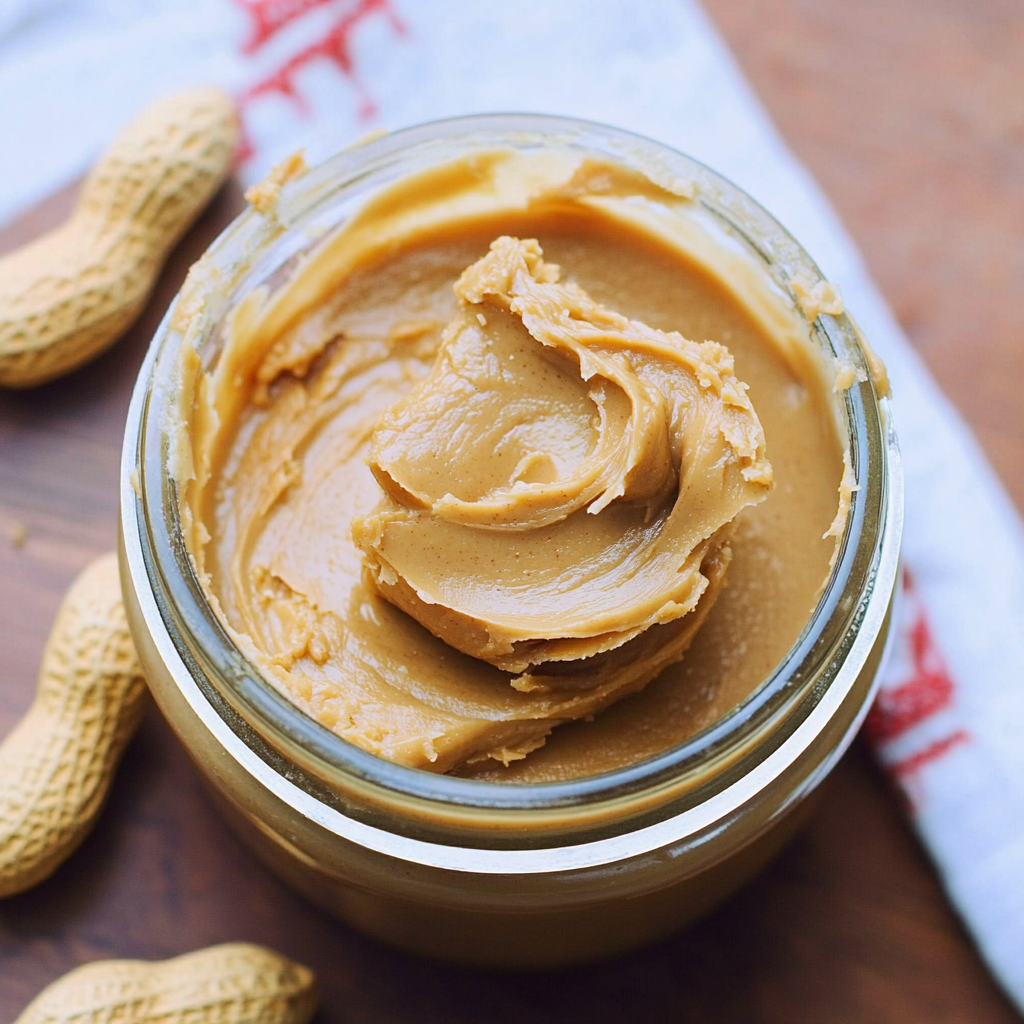
Conclusion: Embrace the Deliciousness of Homemade Organic Peanut Butter
Creating your own organic peanut butter is a simple yet profoundly satisfying experience. The rich flavor, creamy texture, and knowledge of exactly what you’re consuming are unparalleled. This recipe empowers you to take control of your food choices, ensuring both deliciousness and health. Don’t just take our word for it—try this recipe today, and experience the difference for yourself! Share your experiences and any variations you try in the comments below. And don’t forget to share this fantastic recipe with your friends and family!
For more delicious and healthy recipes, check out Food Network for a wide array of culinary inspiration. Learn more about the nutritional benefits of peanuts on Wikipedia.
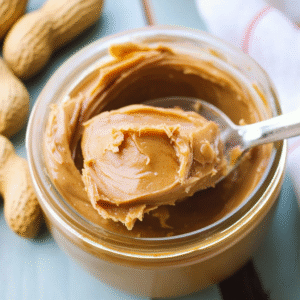
Organic Peanut Butter
Equipment
- Food processor
- Measuring cup
Ingredients
Ingredients
- 1 cup Roasted unsalted organic peanuts
- 1/2 teaspoon Organic coconut oil Optional, for smoother consistency
- 1/4 teaspoon Sea salt To taste
Instructions
- Place roasted unsalted organic peanuts into a food processor and process until a coarse meal forms.
- Continue processing the peanuts, scraping down the sides of the food processor as needed, until a smooth peanut butter consistency is achieved.
- Add the organic coconut oil (if using) and sea salt to the food processor. Process until all ingredients are thoroughly combined.
Notes
Store in an airtight container in the refrigerator for up to 2 weeks.
You can adjust the amount of salt to your preference.
